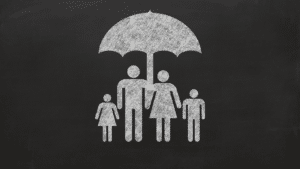
Do you know the difference between good and bad debt? Are you able to maintain and afford the debt you take on? Many individuals are not. In fact, we’ve been reading tons of articles and studies that are finding that Americans, in particular millennials, are piling on debt during this time. Given the inflationary and high interest rate environment we are living in, talking about debt is more prudent than ever.
Are higher interest rates and prices changing your spending habits? If you are feeling the heat of inflation, re-evaluate your budget and cash flows, ensuring you are only purchasing what you can truly afford. Spending more than you make can slowly pile up your bills overtime, making it hard to pay your debt each month.
While taking on “good debt”, such as opening lines of credit to prove to creditors you are responsible with your money, is a great way to build your personal credit, taking on too much debt can eventually harm your credit score. So, obviously there is a happy medium when it comes to taking on debt and building your credit.
As we’ve discussed before, your credit score is oftentimes considered the lifeline of your financial life. Having a strong credit score allows you to not only take on more debt, but lets you do it a better price. For example, with a high credit score, lenders are more willing to approve your application and provide you with a lower interest rate. Given the high interest rate environment we are in with the Federal Reserve hiking interest rates to combat inflation, receiving a competitive and lower interest rate is huge to your financial situation.
Furthermore, with interest rates still going up, you want to make sure you are aware of the type of debt you have and are taking on, whether it’s tied to a variable interest rate or its fixed. Many individuals aren’t aware they have variable interest rate debt and understand their finaical obligation to it as rates rise. We know the difference between good and bad debt can be overwhelming to understand, which is why we recommend working with a financial professional to ensure you know everything you have, what your financial obligations actually are, and how to make the best decisions surrounding them. If you have any questions on your personal financial situation or debt, email us at info@shermanwealth.com.



